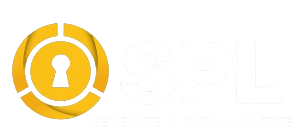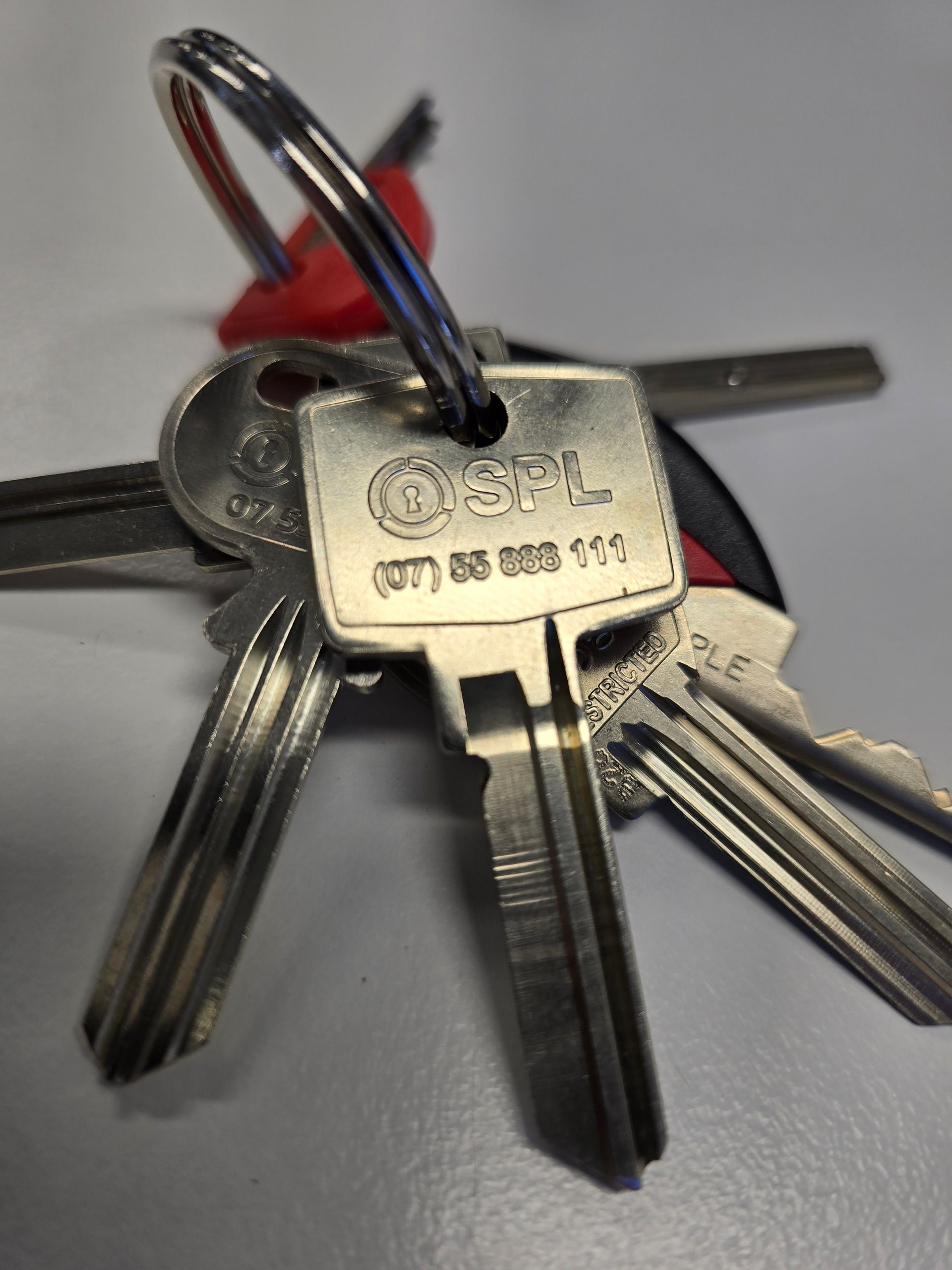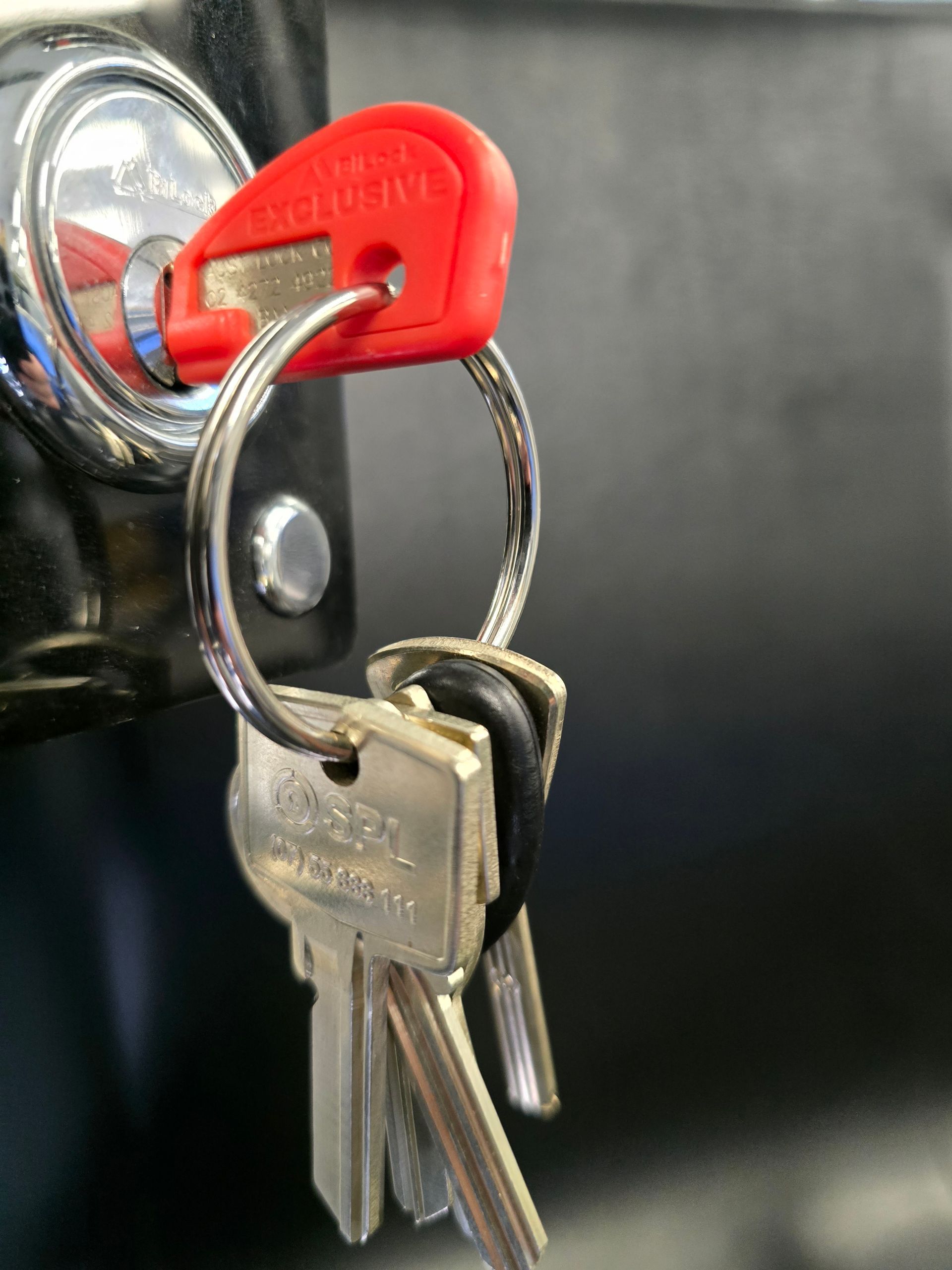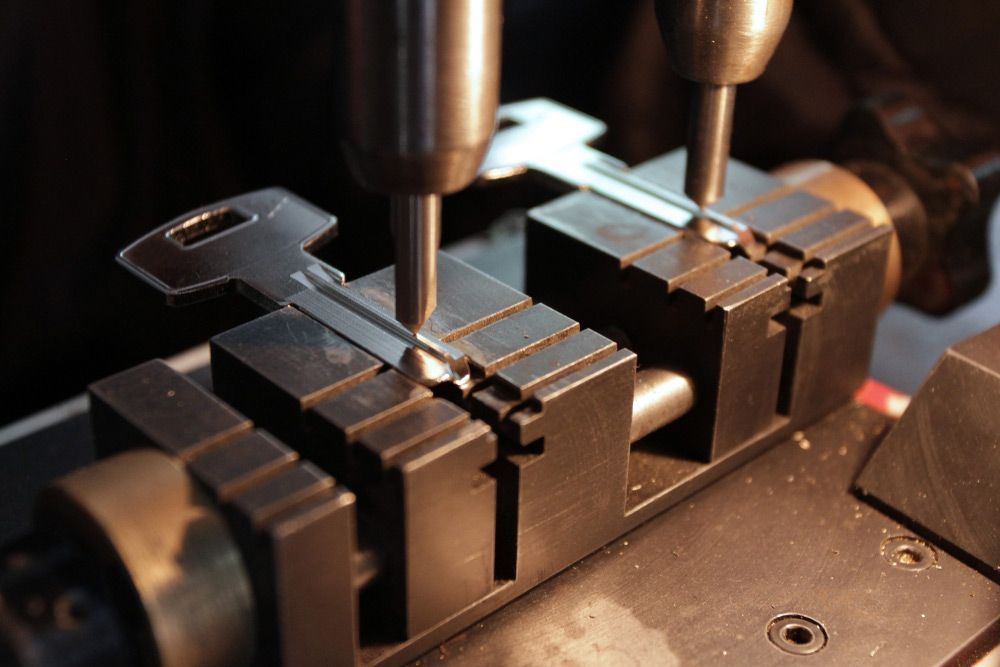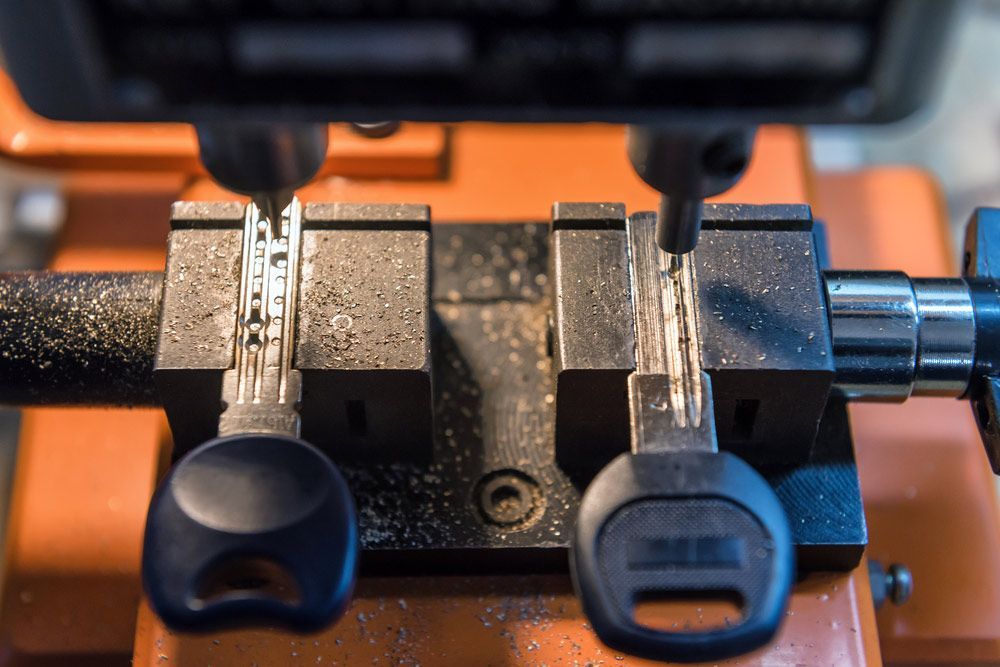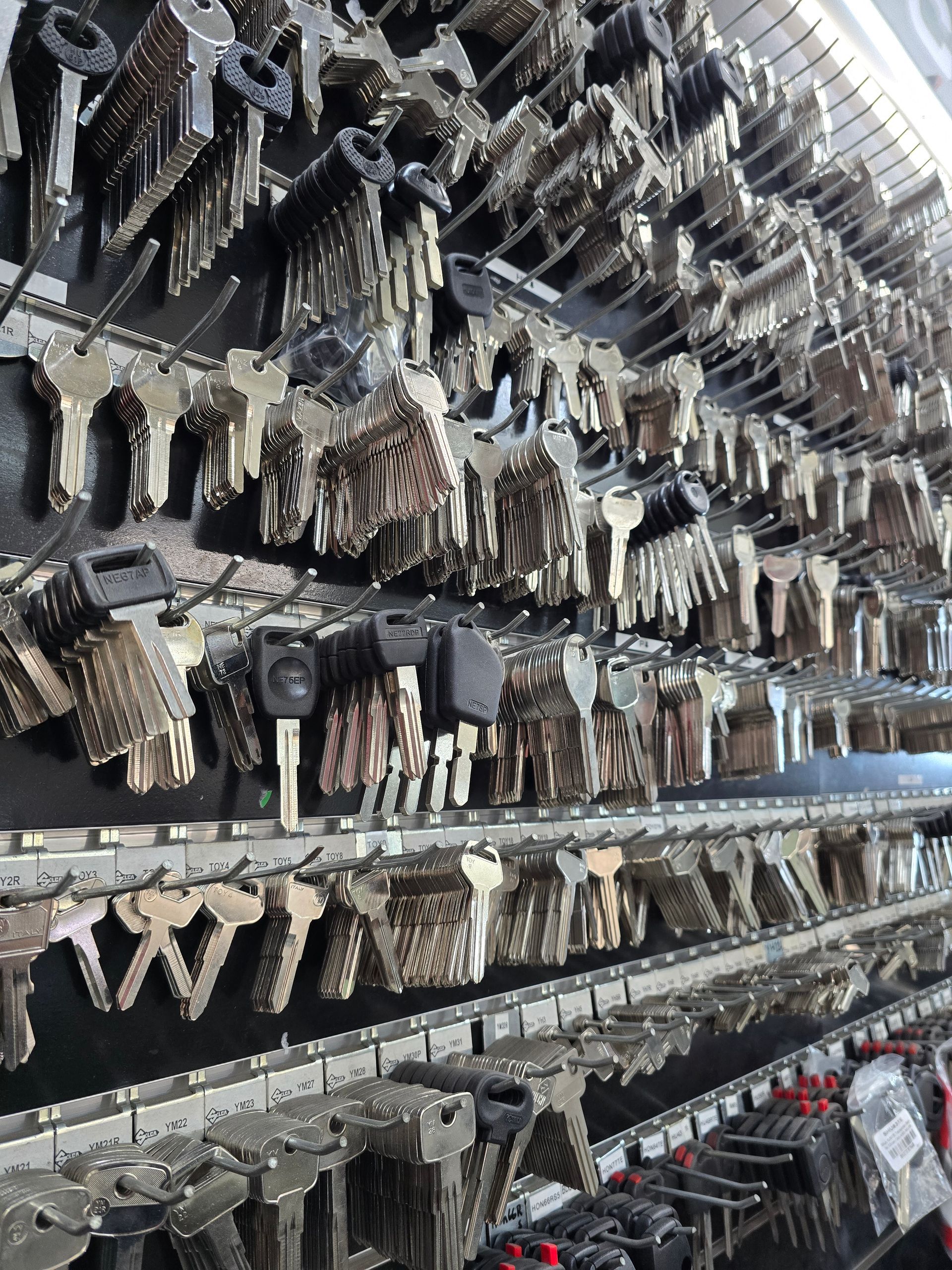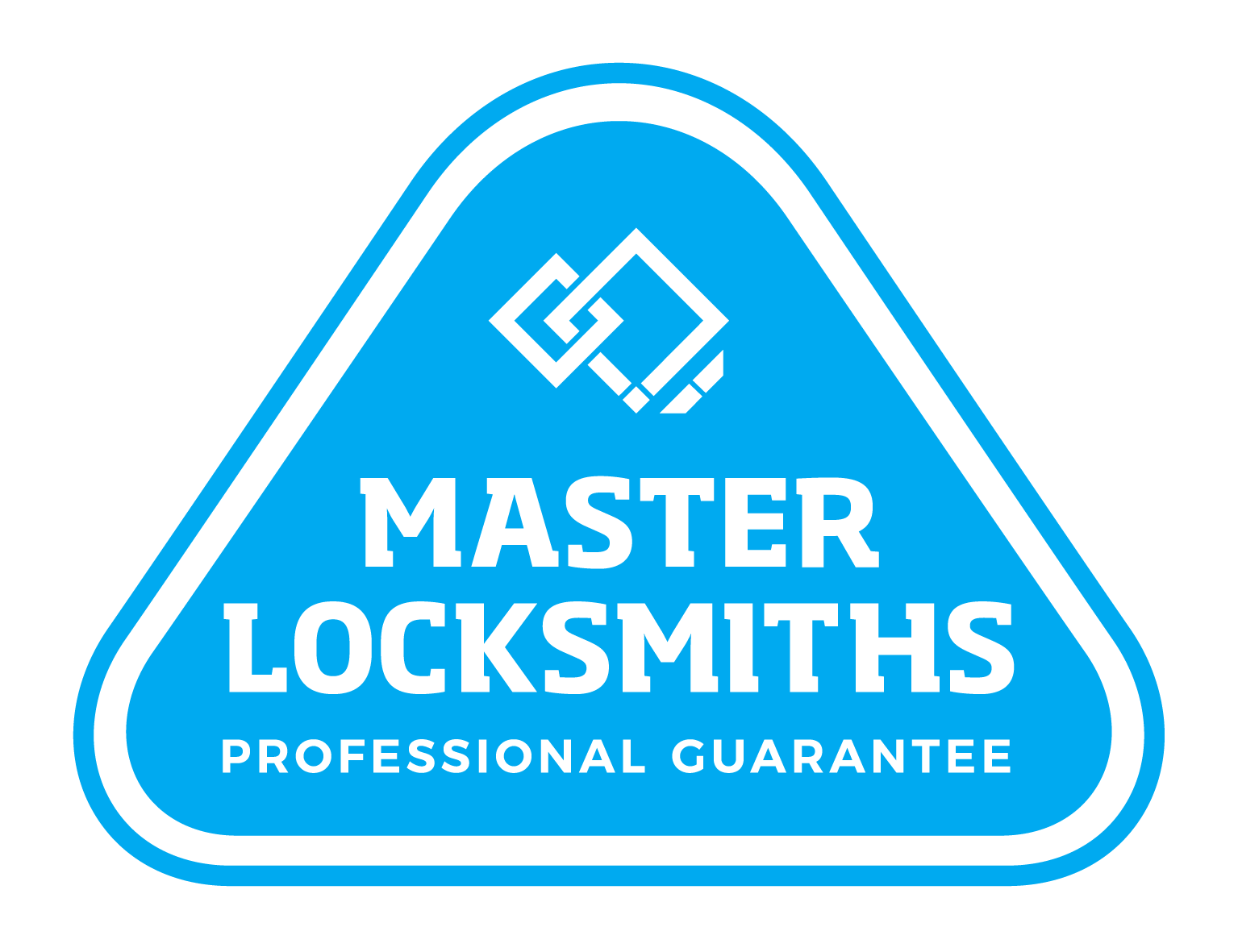FREE QUOTES AVAILABLE
GOLD COAST, BRISBANE, NORTHERN NSW
24/7 EMERGENCY ASSISTANCE
Restricted Key Systems
A restricted key system from SPL Security Solutions will prevent unauthorised key copying giving you peace of mind—you will always know who has a copy of your keys!
A restricted key system utilises patent-protected keys and lock barrels to restrict access to your building or complex and stop unauthorised duplication. The special patented keys are only available to approved agents; you won’t find them at the local hardware or key cutting shop and details about who is authorised to have them duplicated are recorded by us.
We will not cut a duplicate key without a letter or order signed by one of the signatories for your system. This gives you complete peace of mind, knowing how many keys are in circulation at any one time. Call (07) 5588 8111 to find out more. We operate throughout the Gold Coast, Brisbane and Northern NSW.
Master Key Systems
In addition to our security system installation and maintenance, we offer 24/7 alarm monitoring for comprehensive protection. Our alarm monitoring service allows us to remotely monitor your property for potential security breaches or incidents. If an alarm is triggered, our team will immediately take the appropriate course of action, notifying the relevant authorities.
Restricted Master Key Systems
As the name implies, these systems restrict the availability and distribution of key blanks and barrels. There are many providers of restricted key products through locksmith channels and they all have a registered or restricted design pattern on a key or barrel. The restricted system provider supplies the system to the locksmith under an agreement that is both legally and ethically binding. This helps to ensure the integrity of the restricted product.
Read More
The biggest advantage of this system is the locksmith controls the system. Whenever the client needs additional keys, they must order the keys with a signed request. The client nominates a responsible person within their organisation to be the designated signatory and a sample of that person’s signature is kept on file to verify each order. In addition, all restricted keys are individually stamped with system number, rank and sequential generation, which can be used to track keys and the design of the system.
An alternative option is restricted/encrypted electronic fob technology, which uses secure, encrypted signals to grant access to buildings or vehicles. This prevents unauthorised entry by ensuring that only authenticated fobs can communicate with the locking mechanism, enhancing security against hacking or cloning attempts.
High-Security Restricted Master Key Systems
Unfortunately the freedom of expression that has come with the Worldwide Web also has a downside and the security industry has not been excluded, there is now an abundance of websites only too willing to share for fame or fee ways to breach many security systems. The first to suffer has been the humble “in line pin cylinder” which is the basis of approximately 98% of all locks in Australia. The solution is to install one of the high security locking systems now available such as Abloy Protec which is used extensively by private, commercial and government end users who demand the ultimate in high security master key systems.
Restricted key systems have been the industry standard worldwide for many years and is a very cost effective way to ensure security over locks and keys.
Contact SPL Security Solutions today for expert advice on how to secure your home or business.
